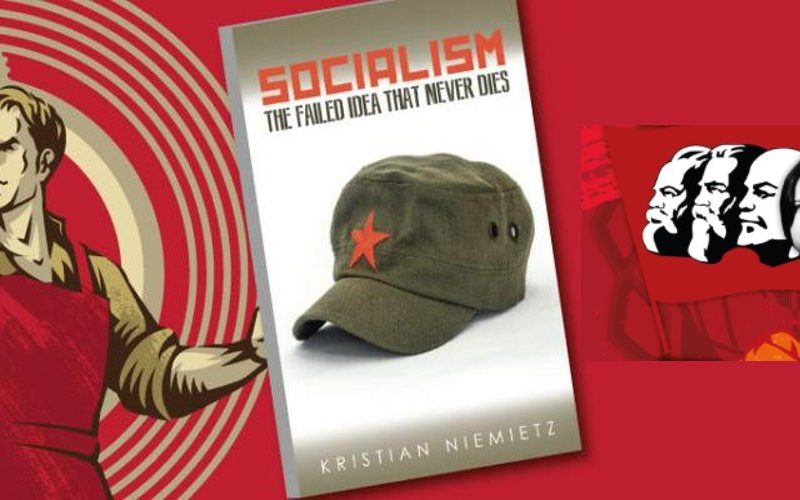“We are intensely relaxed about people getting filthy rich as long as they pay their taxes.” So famously said Peter Mandelson at the height of New Labour’s power and influence.
Often that quote is truncated to remove what is the fairly important point about paying tax, so it became a phrase focused on high earnings. But regardless it became not only a symbol of how far Labour had come on its journey into capitalism but ended up firmly part of the zeitgeist.
As I read the headlines and opinion pieces on what happened with Persimmon and its now former CEO Jeff Fairburn, I can’t help but feel that everyone has forgotten what capitalism actually is.
Even the people who are notionally trying to defend it, can’t help but gloat about Fairburn’s demise, or whine about his earnings. It’s termed a “pay scandal” and “crony capitalism”, but I would argue it’s neither of those things.
Let’s keep this simple: Jeff Fairburn has made a lot of money. You can argue as much as you like as to whether he has earned it, or whether he deserves it, but he had a job, which included rewards and incentives including a salary and bonuses. He didn’t steal this money. The system gave it to him.
He’s been CEO since 2013 and since then Persimmon has done well. The CEO was rewarded accordingly.
Now wait just a minute, I hear you say. And before I hear your protestations, let me try and get in there first.
“The only reason Persimmon has done so well is because of the inept housing policy of successive governments, including most recently the Help to Buy scheme.”
“Even his reduced bonus of £75m is an obscene amount of money.”
“There should be a cap on bonuses and the board should never have approved such a scheme linked to corporate value.”
“People like this give capitalism a bad name.”
“It’s a gift to Jeremy Corbyn’s Labour party.”
Any of those sound familiar? Maybe all of them.
But all these arguments are fundamentally missing the point. A pay scandal is where somebody hasn’t been paid what they are rightfully owed. It’s when different groups of people get paid wildly different salaries because of who they are, not the job they are doing.
This isn’t a pay scandal, it’s the politics of envy, plain and simple. How could anyone earn such a large amount of money? They must be awful.
Of course, Fairburn’s media appearances haven’t done him any favours. But he was hired as head of a house builder, not a PR agency.
But I’m not defending him personally or any action he has or hasn’t taken. The point is, the company he was hired as Chief Executive deemed it right to pay him this money (and they certainly made enough of it) and so in return he did a job.
Just because he has, so far, seemed incapable of reading the mood of the nation, doesn’t mean he should have earned less, yet I keep coming across articles that seem to suggest that for every public miscommunication an extra £5m should be lopped off his bonus.
Yet this isn’t how we treat footballers. Yes there are those who think that their pay is obscene, but they tend not to be the people who pay for the tickets or TV subscriptions to watch them play.
So where are we all going wrong? Well let’s start with this term “crony capitalism”.
I knew we shouldn’t have chosen the crony type of capitalism. We should definitely have chosen some kind of fluffy bunny type of capitalism instead. No, I’ve got it – “caring capitalism”. That’s what we’ve been missing all along. Just whatever we do, let’s not choose “death capitalism” – things could all get a lot worse.
Let’s call things what they are. Cronyism is cronyism. You don’t need capitalism for it to exist. In fact, far from it. You couldn’t get a system that encourages more cronyism than a collectivist one like socialism. Just look at Stalin’s Russia, or Maduro’s Venezuela.
The fact is that cronyism exists in every system, and the more a government intervenes, the more opportunities there are for people to get in on the gig.
Free markets are a tough sell. There’s no doubt about that. Explaining to people why Carillion going bust is ultimately a good thing takes some work, but it’s what true advocates of freedom should be doing, not becoming apologists for capitalism.
As soon as you start to advocate “good” capitalism over “bad” capitalism, you instantly fall into the trap the political left has set. And it was the easiest trap they’ve ever laid.
Because if you take one CEO, one company, one industry, then of course you will find things that you personally find unacceptable, unfair, or downright appalling. Your opinions on those entities or people will be valid. Problems will undoubtedly exist. But they aren’t a case for intervention.
Because truly free markets are driven by consumers. Free markets punish failure and reward success. They are bound by the aggregate decisions of everyone’s individual choices.
Competition for custom, and the permanent threat of failure is what drives companies to succeed.
If Carillion couldn’t make money, and were being propped up by government contracts, then it’s a good thing it no longer exists, so that a better company (or companies) can fill its shoes.
If Persimmon now think they paid too much to their CEO, they’ll review it and lower it. If the act of paying their CEO too much causes them somehow to completely fail, then it will be because they made the wrong decisions, and the market will see to it they are replaced by people making better decisions.
We must start explaining again the benefits of the system that has produced more wealth in the world than any other before it.
If there is a scandal here it’s that housing is treated differently by the state to other parts of the economy. We see the same in the financial sector and very much in healthcare.
While house builders are encouraged by the current regulations and government policy to land bank, and while they aren’t allowed to build on viable, useful (and not green) land in the green belt, the housing market won’t be free.
While there is quantitative easing, pushing up asset prices, and stamp duty discouraging sale, the housing market won’t be free.
Yes, in a free market economy, businesses will fail. But those are the businesses that should fail.
And yes, in a free market economy, some people will be paid handsomely for what they do.
But we must work to gradually remove the encumbrances from the housing market and others, as otherwise we will end up piling on more changes, more regulations and more intervention. Of course more intervention will all be with the best of intentions. But those intentions will have the unintended consequences we are already seeing. A small number of large incumbent providers lining their pockets, because the system encourages them to.
When I see the terms “broken markets” or “crony capitalism”, I can’t help but think we need to wake up from this delusion that the right person, the right policy or the right amount of intervention will “fix” the markets in the name of fairness.
The real scandal is that we’ve forgotten what free market capitalism really is.






